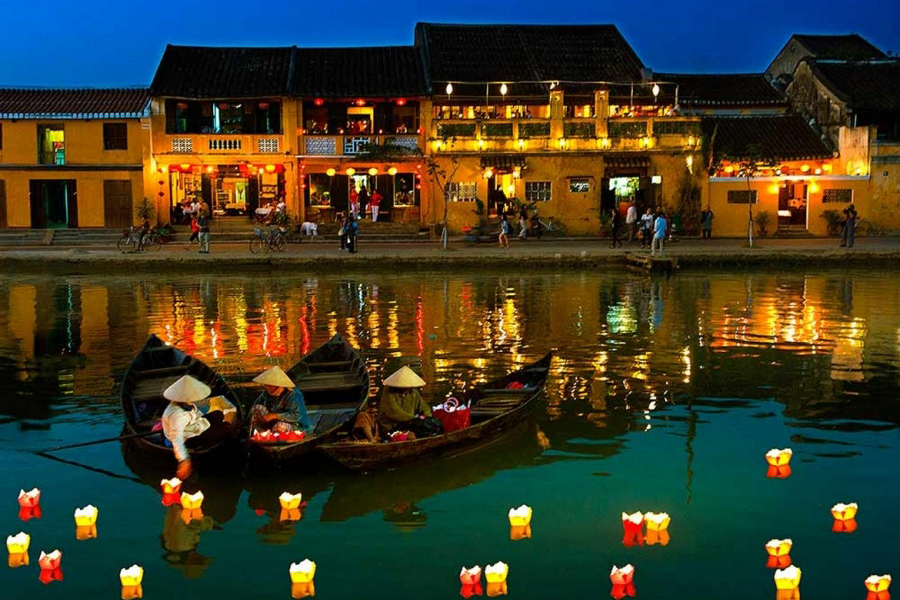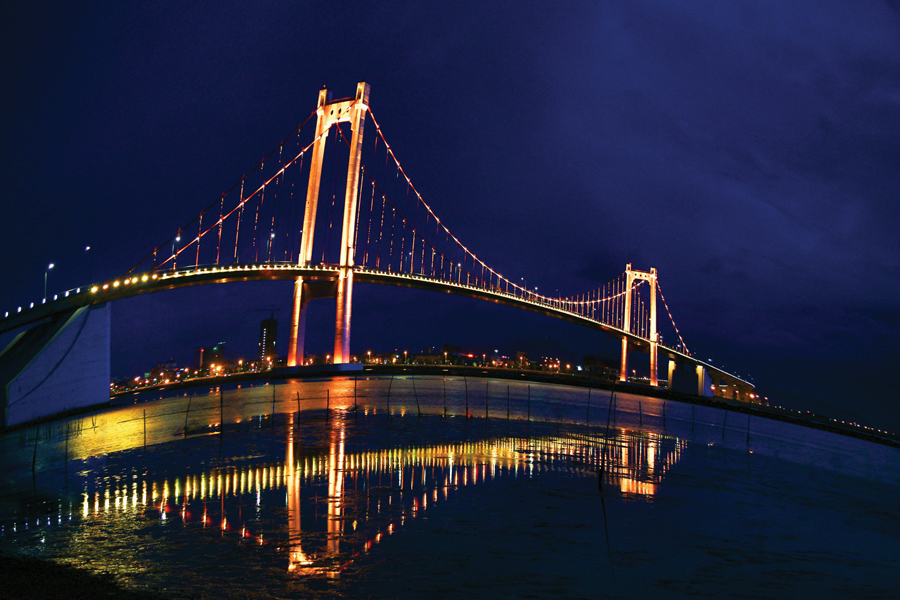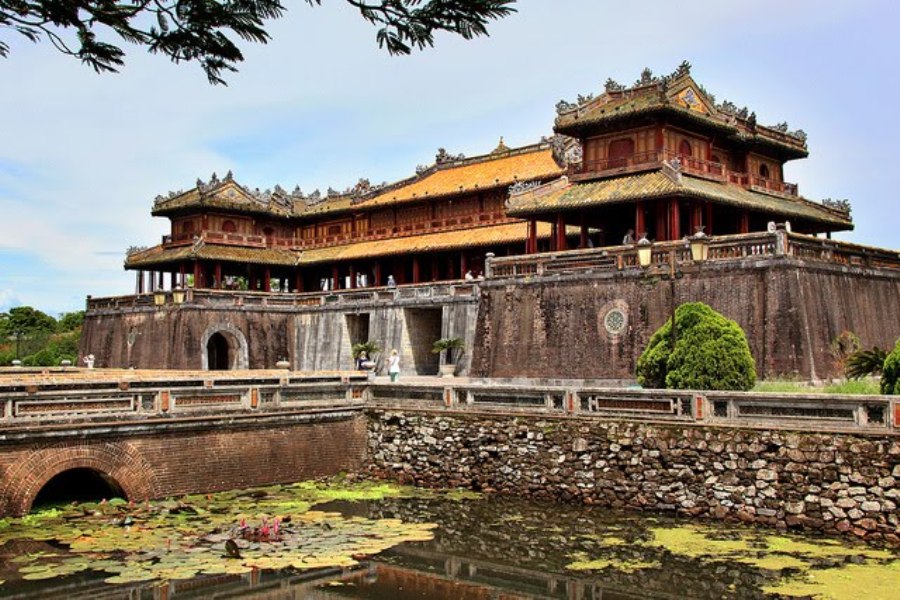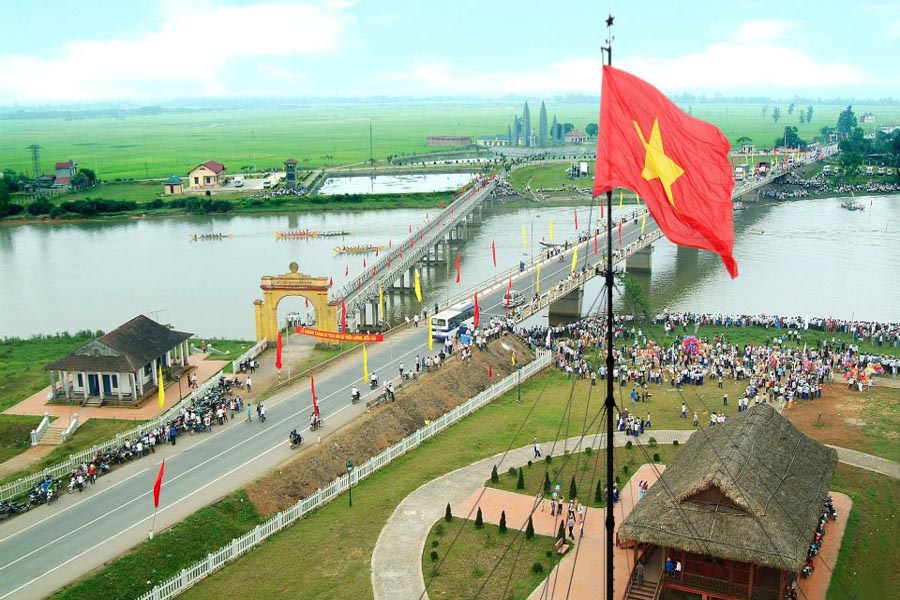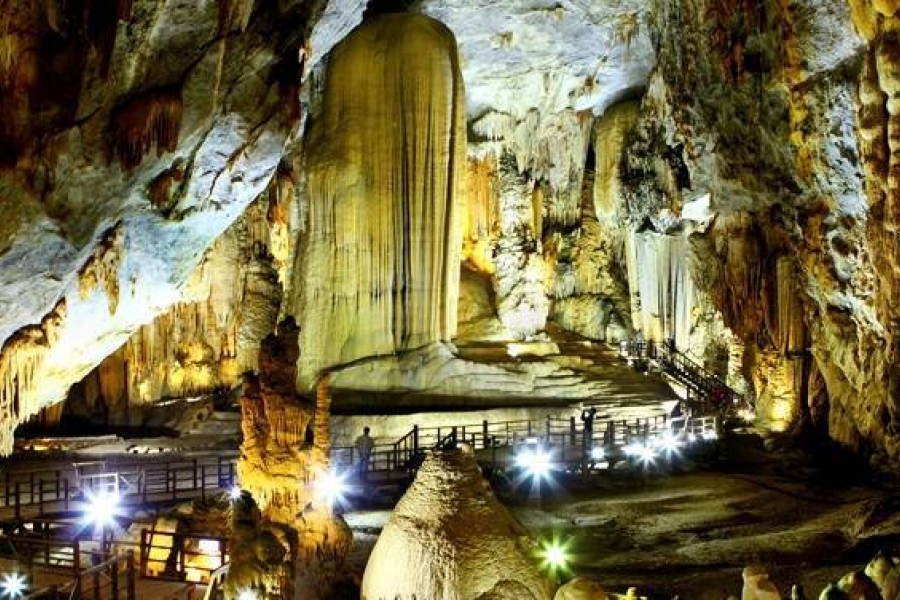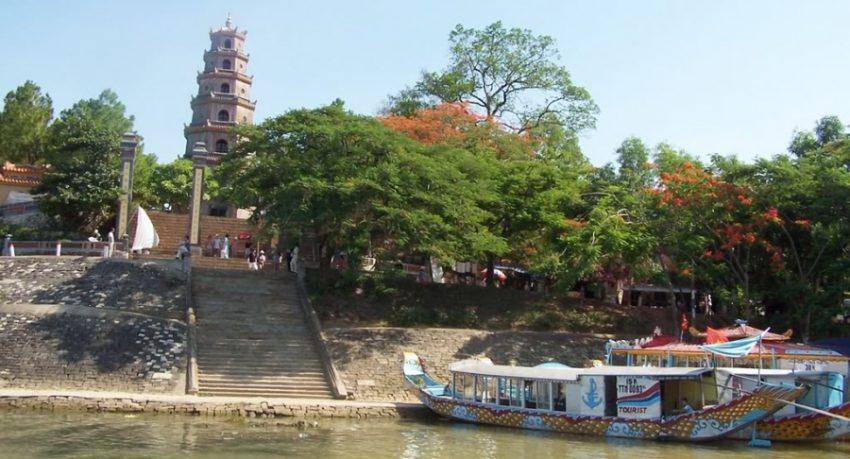The Vietnamese aesthetic researchers state that “In the citadel the mots striking thing… is Hien Lam pavilion, a beautiful construction with 3 layers and 12 roofs”.
Hien Lam pavilion was built at the same time with the temple (1821 – 1822) during Minh Mang’s reign. Hien Lam pavilion was constructed right in front of the temple on a high rectangular foundation, paved with Bat Trang bricks; surrounded by bricks, lime, motar and relieved with decorative ceramic chips – the two rows of Thanh stone steps lead up to the foundation and behind each row is 9 steps. The two side walls of the stwps are relived with dragon figures, the middle path was exclusively reserrved for the Emperor.
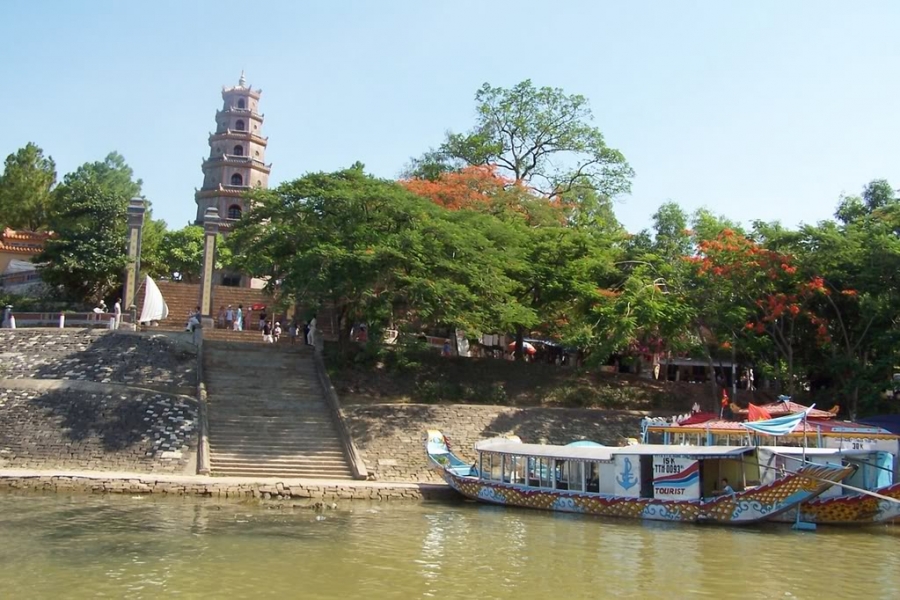
Hien Lam pavilion is a high wooden construction. The first floor has rooms and 2 wings. Around the outer sides of the two wings, a brick wall was built to reinforce the pillar and to partially cover the interion part. The third pillar row from the front stands a row of “Do Ban” and in th A e middle of each room has an arch door. All the beams and wooder objects of this floor flowers and leaves. On the middle door hangs a big sign which says “Hien Lam Cac” on a green background, its frames is engraved with 9 red and gilt dragons playing clouds.
In the right room is a beautiful decorative staircase leading up to the second floor. The two banisters are divided into many squares decorated by “Tho” and “Van” characters. The two ends of the banisters are relieved with gently winding dragon heads and tails.
The second floor has two rooms. Formerly there were an altar, a red and gilt royal bed there, the two back and front parts have shutters and wooden on both sides. Surrounding is a wooden pararet system with polished and meticulous wooden objects. There are four beautifully carved main and 4 bordinate pillars to support the roof.
The third floor has only one room. A nine-step wooden staircase leads up to it. In its front and back sides are shutters. To support the whole of the topmost roof a system of four main and four subsidiary pillars stretching out like hands. Thanks to this system, the roofs are widened. It has both the constructive and decorative values, creating many bright and shady patches for the outside surface of the construction, and also enhancing the severe atmosphere of the royal palace.
The top middle of the third floor is decorated with a light yellow enamelled bronze wine pot on bight five-coloured clouds.
Hien Lam pavilion is both aesthetically and technologically valuable. The pavilion is high with many floors which are symmetric and harmonious with each others. The solidity of the building for nearly two centuries shows the talent and dexterity of the carpenters both in constructively solid and aesthetically decorative terms.
The main function of the Hien Lam pavilion is being a memorial to function of the Hien Lam pavilion is being a memorial to remind the merits of the Emperors of the Nguyen dynasty who are worshipped in the temple and meritorious mandarins who are honoured in Ta Tung Tu (Left temple) and Huu Trung Tu (Right Temple).
Copyright by Phong Nha Pioneer Travel
Categories: Blog

